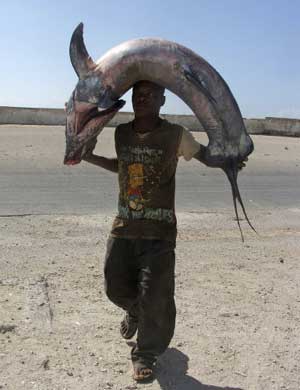 Just when colonialism was considered dead and buried, along comes neo-colonialism in its latest guise. Allied with its close relatives globalisation, free marketeering and lack of transparency, it is currently launching a new offensive on the disempowered population of this continent. Kwame Nkrumah, along with others in the post-colonial Pan Africanist movement, coined the term ‘neo-colonialism’ to describe continued access to the resources of less developed nations, by both national and private interests allied to wealthy nations. He warned against the continued impacts of colonialism if the risks inherent to neo-colonialism were neither addressed nor dealt with. Read More
Just when colonialism was considered dead and buried, along comes neo-colonialism in its latest guise. Allied with its close relatives globalisation, free marketeering and lack of transparency, it is currently launching a new offensive on the disempowered population of this continent. Kwame Nkrumah, along with others in the post-colonial Pan Africanist movement, coined the term ‘neo-colonialism’ to describe continued access to the resources of less developed nations, by both national and private interests allied to wealthy nations. He warned against the continued impacts of colonialism if the risks inherent to neo-colonialism were neither addressed nor dealt with. Read More


 Just when colonialism was considered dead and buried, along comes neo-colonialism in its latest guise. Allied with its close relatives globalisation, free marketeering and lack of transparency, it is currently launching a new offensive on the disempowered population of this continent. Kwame Nkrumah, along with others in the post-colonial Pan Africanist movement, coined the term ‘neo-colonialism’ to describe continued access to the resources of less developed nations, by both national and private interests allied to wealthy nations. He warned against the continued impacts of colonialism if the risks inherent to neo-colonialism were neither addressed nor dealt with.
Just when colonialism was considered dead and buried, along comes neo-colonialism in its latest guise. Allied with its close relatives globalisation, free marketeering and lack of transparency, it is currently launching a new offensive on the disempowered population of this continent. Kwame Nkrumah, along with others in the post-colonial Pan Africanist movement, coined the term ‘neo-colonialism’ to describe continued access to the resources of less developed nations, by both national and private interests allied to wealthy nations. He warned against the continued impacts of colonialism if the risks inherent to neo-colonialism were neither addressed nor dealt with.